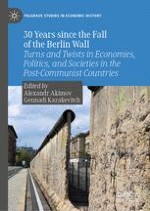2020 | OriginalPaper | Buchkapitel
7. Russia’s Growing Relationship with Iran: Strategic or Tactical?
verfasst von : Ian Parmeter
Erschienen in: 30 Years since the Fall of the Berlin Wall
Verlag: Springer Nature Singapore
Aktivieren Sie unsere intelligente Suche, um passende Fachinhalte oder Patente zu finden.
Wählen Sie Textabschnitte aus um mit Künstlicher Intelligenz passenden Patente zu finden. powered by
Markieren Sie Textabschnitte, um KI-gestützt weitere passende Inhalte zu finden. powered by
